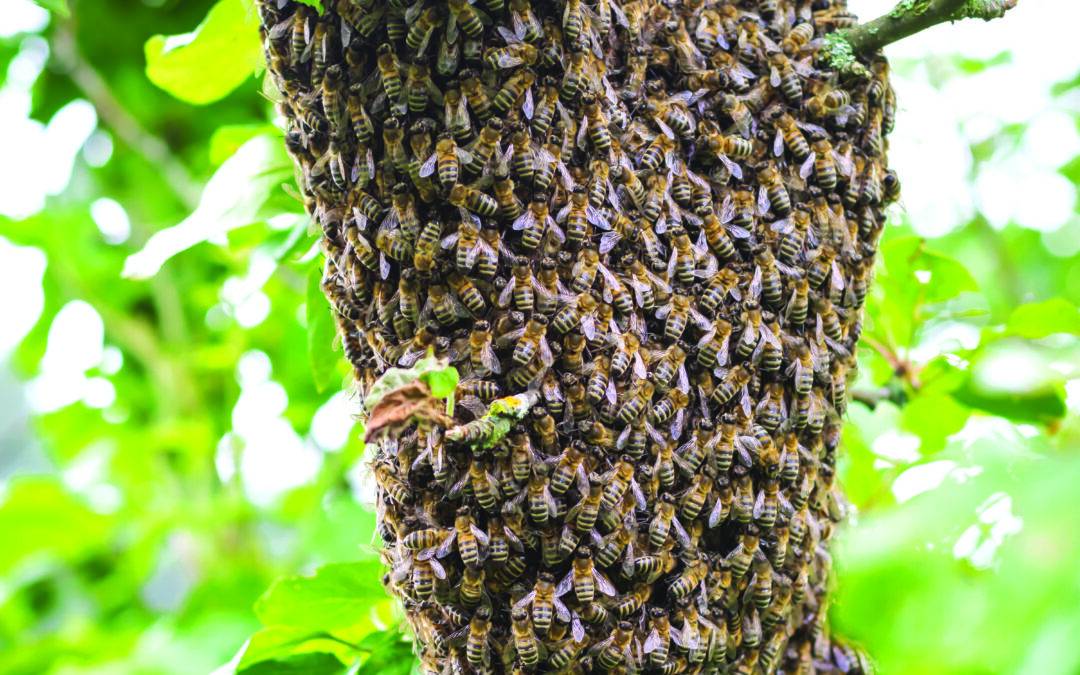BY KADIE VICK
FOR THE OBSERVER
LEE COUNTY — Swarm season has arrived, and community members must be informed on what to do if they see a bee swarm. Seeing a swarm of bees can initially be intimidating but, if informed, people will realize there is nothing to be concerned about.
“As long as people understand the importance of bees to the ecosystem and the value a swarm is to a beekeeper they’re gonna have no problem getting rid of a swarm. People want them, they’re gonna come get them,” Beekeeper Cody Spence said.
Bee swarms occur when a queen bee produces too many eggs and there is not enough room in the hive for all the bees living there so half of them leave to find a new home.
“In the meantime, they’ll park on a fence post or park in a tree or a bush or at the side of someone’s car while the other bees are looking for a home to move into,” Spence said. “So when you see a swarm, the bees are just hanging out waiting for the scouts to get back with a home.”
For anyone who sees a swarm of bees, Spence advises them to contact a local beekeeper.
“I went to a call last night at eight o’clock at night. Because I got bees in the bush. I said ‘I’ll be there in a minute.’ I had a headlamp and a bee suit. And they’re not aggressive. I mean, you can grab them with your hands,” he said.
Spence explained that videos of swarms on social media popular.
“You can look at any social media and there’s just be videos just nonstop,” he said.They go viral because people are so interested.”
Spence currently has 50 hives and hopes to become commercial eventually.
“I started in 2019. I’ve always been interested in bees. By chance there was a doctor out of Montgomery that said he had some hives that he couldn’t take care of anymore,” Spence said. “I went with a couple of buddies to a field and picked them up. We were very under-geared and very overwhelmed. We got stung a lot, but we figured it out.”
Bees are important pollinators but are not native to America. Because of this, they have to be cultivated like livestock.
“The natural pollinators in our area are things like yellow jackets, hornets and bumblebees,” Spence said. “Honeybees are native to Europe and Africa. And they were brought over here so they have to be kept and cultivated to survive.”
For those with allergies this spring, raw honey could be the answer. Local honey is known to lessen allergy symptoms by building up resilience to pollen.
“Any honey you get at the grocery store has been cooked and preserved,” Spence said. “So raw honey from a local beekeeper is way better than anything you can get at a grocery store.”
To rescue a swarm or to purchase raw, local honey, contact Spence through Facebook or by phone at (334)734-4268.


